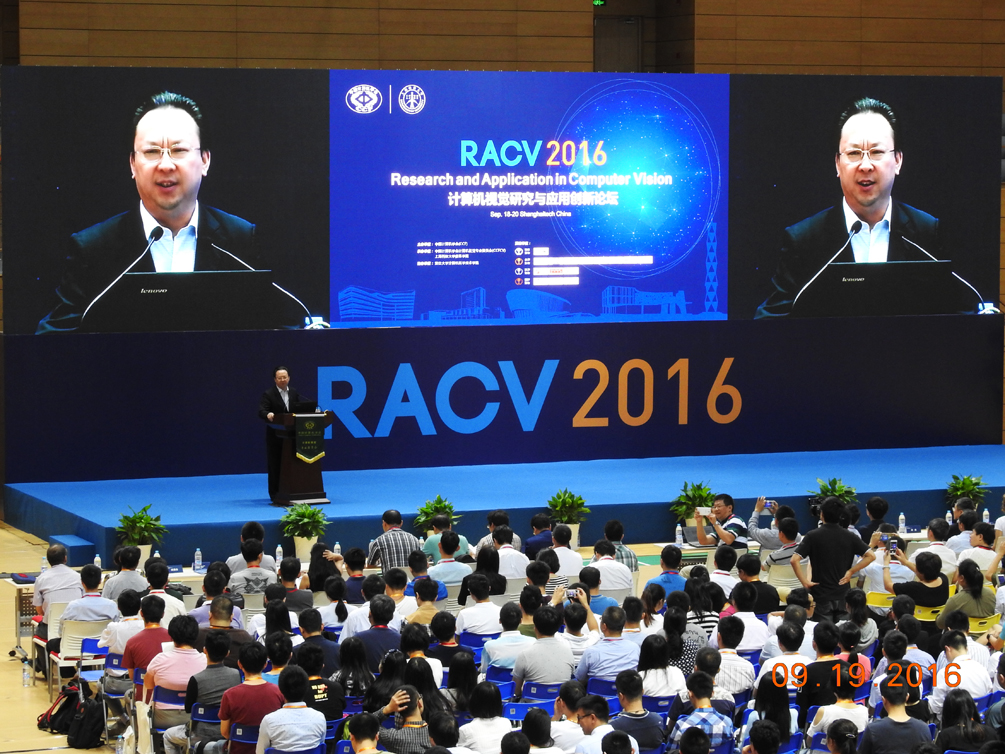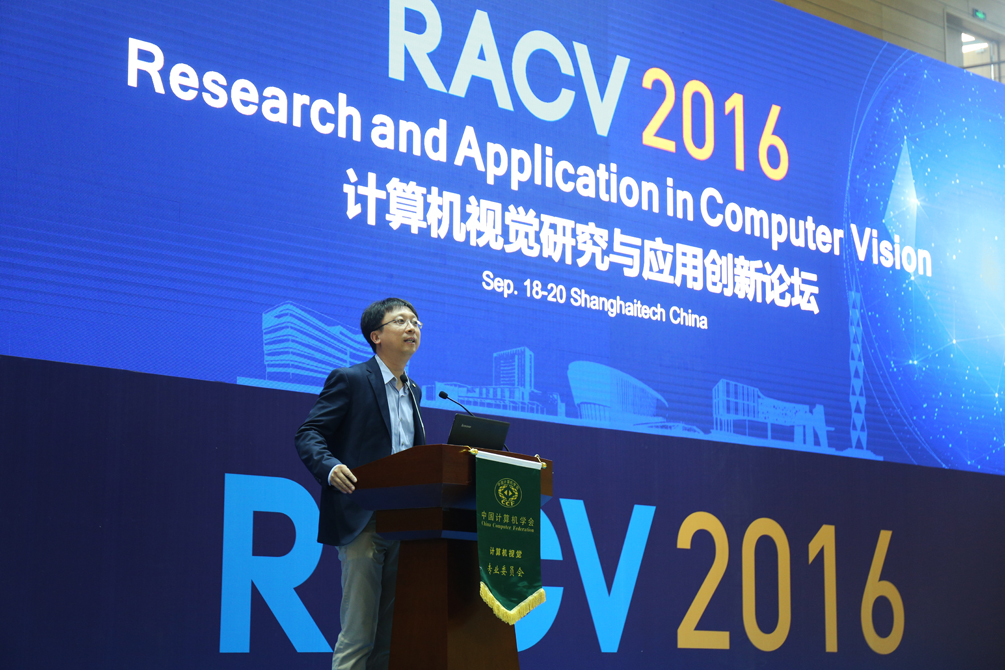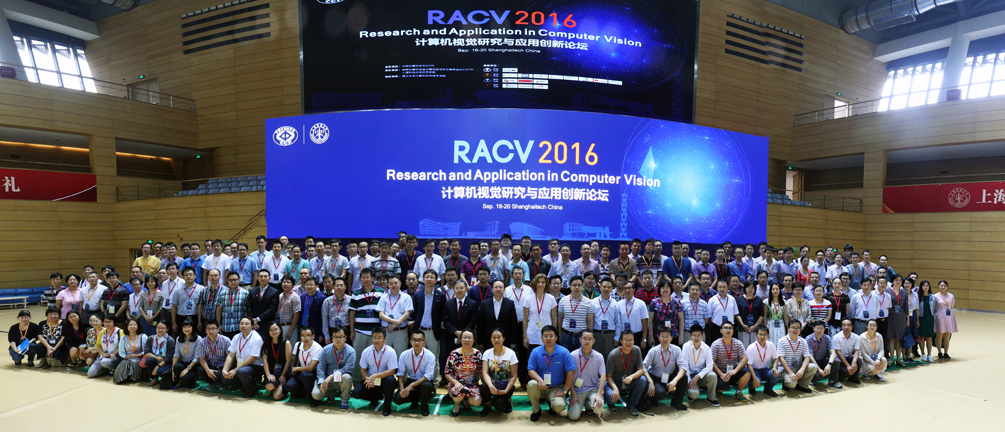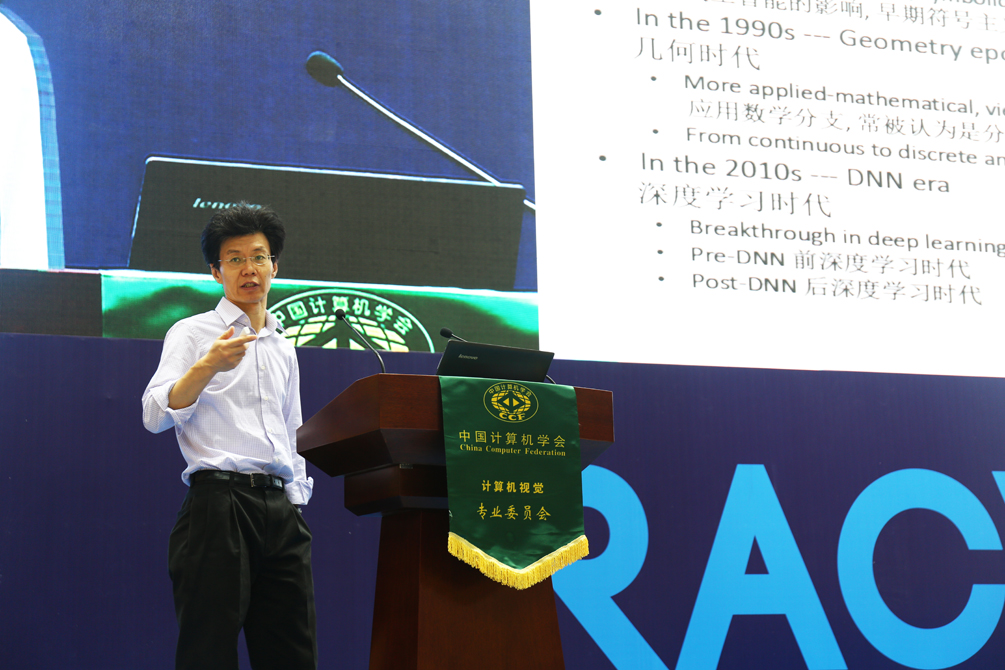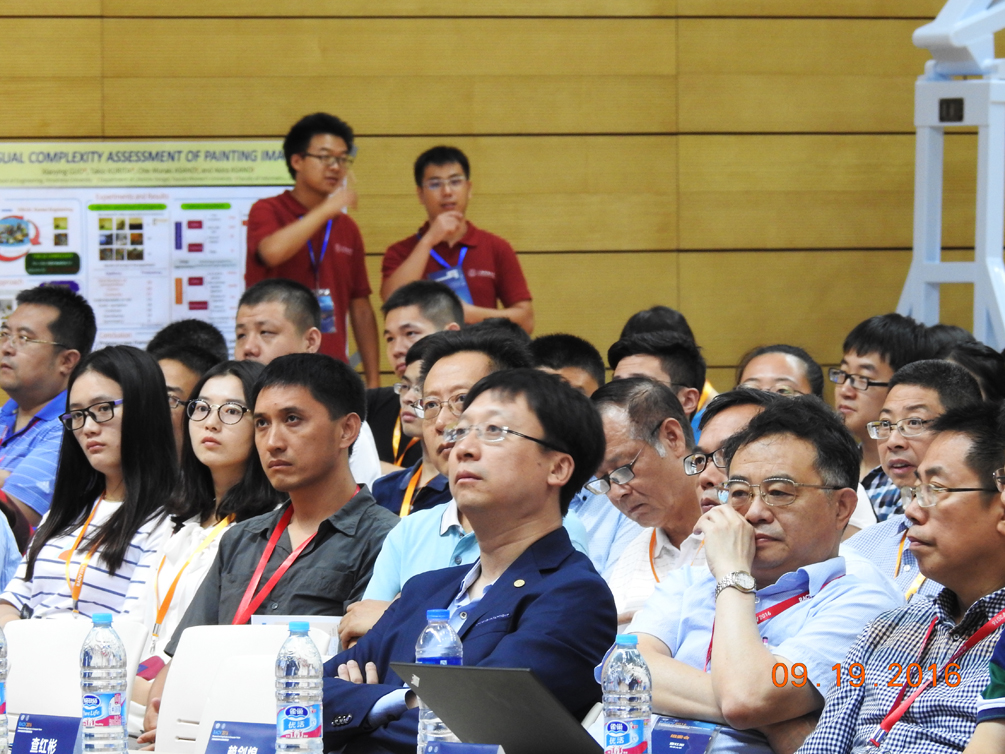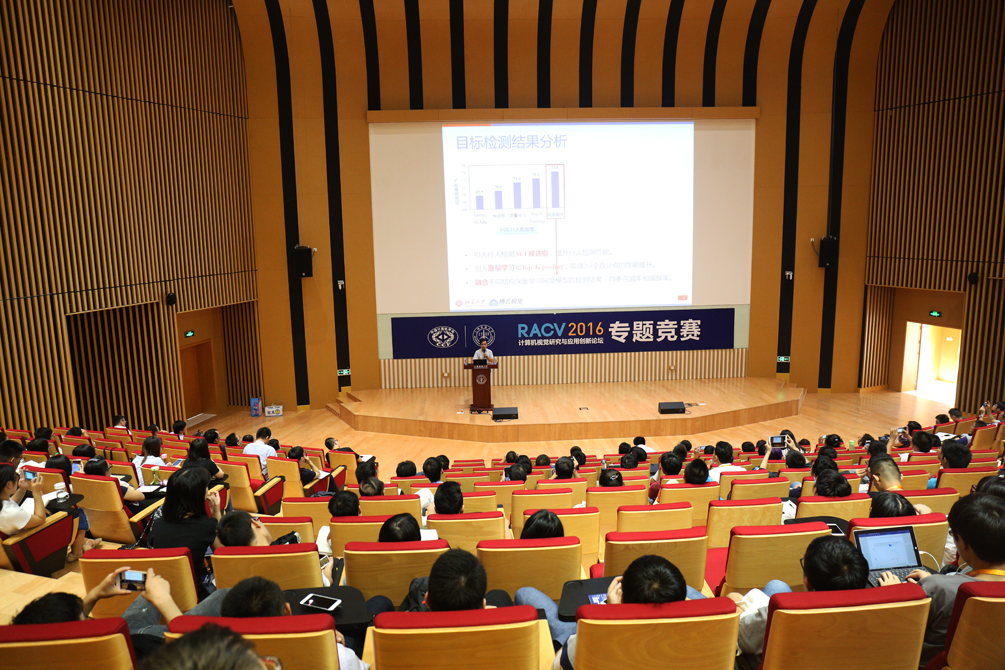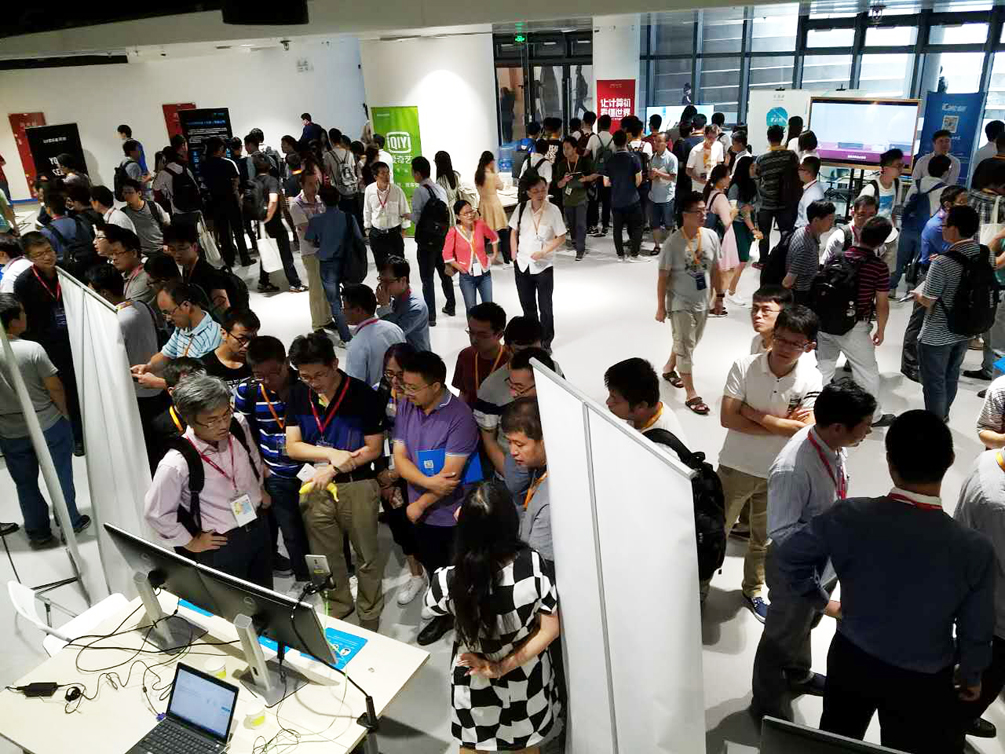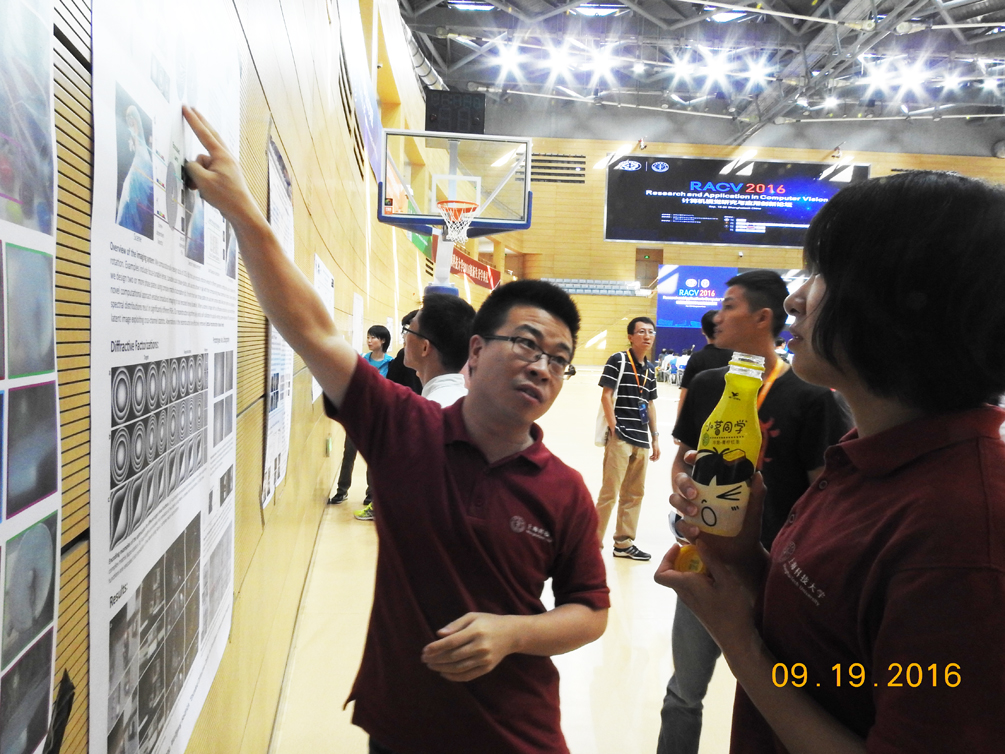ShanghaiTech held its first academic conference at its new campus last week. The 2016 Symposium on Research and Application in Computer Vision (RACV2016) was held from September 18th to 20th. Sponsored by China Computer Federation (CCF) and undertaken by China Computer Federation on Computer Vision (CCFCV), the RACV was co-organized by ShanghaiTech’s School of Information Science and Technology (SIST) and Fudan University. The symposium focused on the theoretical and application research in computer vision. Three keynote speakers and another 24 invited speakers came from universities, research institutes and high-tech companies all over the world, including Israel Institute of Technology, University of Technology Sydney, Peking University, Zhejiang University, Hong Kong University of Science and Technology, The Chinese University of Hong Kong, Microsoft Research Asia (MSRA), 360 Artificial Intelligence Research Institute, Institute of Automation CAS, The Third Research Institute of the Ministry of Public Security, DJI-Innovations, HiScene, Horizon Robotics, VIONVISION and etc. In all, around 800 researchers from both academia and industry attended the symposium. The speakers and attendees discussed cutting-edge theories and technologies in computer vision, and talked about possible academic exchange and development strategies.
The symposium consists of academic talks, panel session, competition session, application demos, and Doctoral Forum. Conference Chair Professor Yu Jingyi from School of Information Science and Technology hosted the symposium. ShanghaiTech Vice President and Provost Dr. Yin Jie introduced ShanghaiTech’s teaching ideas and aims. Vice President of Chinese Academy of Sciences, Director of Center for Research on Intelligent Perception and Computing at Institute of Automation CAS, Dean of CCFCV, Academician of the Chinese Academy of Sciences, International Fellow of Royal Academy of Engineering and IEEE Fellow, Dr. Tan Tieniu made an opening speech. Executive Dean of SIST and IEEE Fellow, Professor Ma Yi introduced the school’s achievements and contributions in computer vision.
In the academic talks, Professor Ramin Zabih, who is a professor in Cornell University, Research Fellow of Google Research, 2009-12 IEEE PAMI Chief Editor, 2013-15 IEEE PAMI-TC Chair, IEEE Fellow; Professor Long Quan, the professor in Hong Kong University of Science and Technology, IEEE PAMI joint editor, IEEE fellow, and Professor Lihi Zelnik-Manor, the associate professor, CVPR 2016 Program Chair, gave three keynote talks at the conference. In addition, five more academic talks and four industrial talks were given by researchers from institutes and the industry sector. Attendees shared their experiences and opinions in computer vision from all aspects of academia and industry.
The panel session included Learning for Vision, Industrial Enthusiasm Analysis of Computer Vision and Computer Vision for Robotics. Researchers and industrial pioneers discussed these themes thoroughly.
The competition session aimed at solving challenges in Resource Management of Internet Media and Applications of Public Security. Three competitions in the vision area including Video Analysis, Sharpening of Blurred License Plates and Video Annotation attracted 86 teams. Three teams, TH-MIG from Tsinghua University, Primary CvVers from Peking University and DIGCASIA from Institute of Automation were awarded first prize.
The application session attracted 21 demonstrations from 19 institutes, covering almost all the hotspots in computer vision.
The Doctoral Forum showed 28 posters for communication between PhDs and industrial elites and promotion of research results by junior scholars. All the authors presented detailed introductions of their work. The committee awarded first and second prizes for excellent posters.
RACV is one of the top Computer Vision conferences in China. The Symposium of Research and Application in Computer Vision is held every other year. It was first held in 2014 in Beijing (SFCV2014) and is alternately held with CCCV (CCCV2015).

